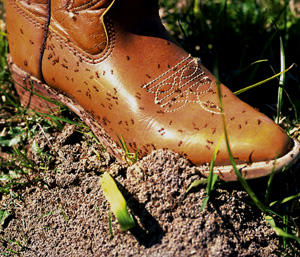 All of the above examples actually come from my festive woes for the upcoming holiday. This year, I plan on trekking the 500 miles to my parent’s house by car and cooking a dinner for the whole family; the perfect gift will be a successful run at both pursuits. As I plan out the dinner to satisfy all the different tastes of my family members, which now range from vegans to hearty meat eaters, I find myself wondering what to make for the centerpiece, the main dish. Years ago, I would have made some type of roast, or possibly a glazed ham. Probably not turkey; as my Dad was never a fan. Now, though, it’s proving much harder to decide.
All of the above examples actually come from my festive woes for the upcoming holiday. This year, I plan on trekking the 500 miles to my parent’s house by car and cooking a dinner for the whole family; the perfect gift will be a successful run at both pursuits. As I plan out the dinner to satisfy all the different tastes of my family members, which now range from vegans to hearty meat eaters, I find myself wondering what to make for the centerpiece, the main dish. Years ago, I would have made some type of roast, or possibly a glazed ham. Probably not turkey; as my Dad was never a fan. Now, though, it’s proving much harder to decide.The more I learn about the meat industry, the less I want a roast to sit at the center of my table, let alone the center of a family member’s stomach. Nothing says love and care like hormone-injected beef or some factory farmed chicken, right? So where does this leave me, and all the others staring at the hole in the table? It leaves us with a chance to reevaluate our eating habits and bring fresh ideas on food into the new year.
More than two years ago, I made a big step toward a healthier lifestyle by choosing to give up meat all together. During this time, I learned the value of spices and the immense variety of vegetables and fruits we can enjoy. It also gave me more respect for the farmers that grow it and a careful eye for picking out the best produce. It brought me to farmer’s markets in mid-summer to pick the juiciest heirloom tomatoes and showed me how to create something delicious when someone handed me a rutabaga. The journey brought me many places and my views changed constantly, evolving with all that I learned. One thing that has consistently resonated within me is a deep respect for life and a strong connection to the Earth. This respect has made me rethink the role of meat in our diets, at the center of our tables and as the largest portion on our plates.
Americans eat far too much meat without even realizing it. A turkey isn’t a turkey anymore, it’s a package of deli slices for lunch; chicken is drenched in BBQ sauce and conveniently microwaved for dinner. Stopping to think how much meat the typical American eats in a given day, let alone the whole week, is absurd. Meat prices are so artificially low that we can enjoy our favorite dishes everyday instead of reserving them for special occasions - like the holidays. Meat should be regarded as a delicacy, honoring the life that was given so you may enjoy it. It used to be a smaller part the meal. It wasn’t the whole dinner and it certainly wasn’t the meat most of us know today.
So this year, as you stare at the hole in your holiday table, think of what you are thankful for. Think of what you are celebrating or whom you are honoring. If you do eat meat, respect the animal and yourself enough to buy it from a local farmer who raised it on open pastures instead of in a CAFO (Concentrated Animal Feeding Operation). Check out LocalHarvest.org to find a farm near you. And make sure to try out some new recipes like the ones below. I can personally attest to the harvest stuffed squash from chooseveg.com; it was a big hit during Thanksgiving!
Alternative holiday recipes:
http://www.chooseveg.com/stuffed-acorn-squash.asp
A complete vegetarian Christmas dinner:
http://www.theveggietable.com/recipes/christmas.html
- Guest post by Christopher Grohs, Toxic Free NC Volunteer




















